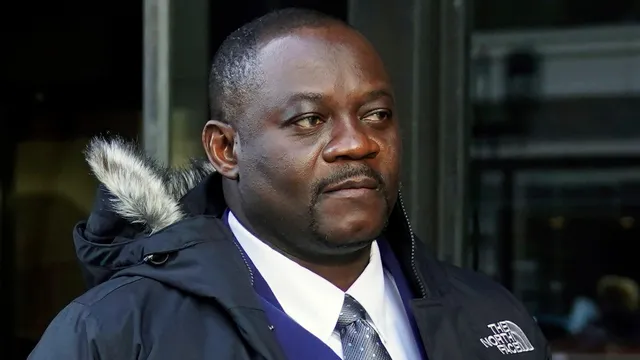
Ex-mayor faces trial for visa fraud amid accusations of rights abuses
2025-03-17 08:06- Jean Morose Viliena is accused of visa fraud for denying involvement in human rights abuses.
- He was indicted in 2023 after federal prosecutors connected him to acts of violence while serving as mayor.
- The case highlights significant human rights concerns and demands for accountability in Haiti.
Express your sentiment!
Insights
In March 2025, Jean Morose Viliena, a former mayor who served in the Haitian town of Les Irois, faces trial in the United States for allegedly lying on his visa application about his involvement in human rights abuses. Indicted in 2023, Viliena submitted an application where he claimed not to have participated in extrajudicial killings or violence against his fellow citizens. However, federal prosecutors have presented evidence indicating that while serving as mayor, he was implicated in violent acts against political rivals, including a 2007 incident where he was involved in the murder of a political opponent's brother. Repeatedly, the allegations suggest a pattern of using violence to suppress opposition and maintain power in his community. In 2008, it is claimed that Viliena and his allies assaulted individuals opposing him and attempted to intimidate a community radio station. This conduct led to an American jury finding him liable in a civil trial where he was ordered to pay $15.5 million in damages, highlighting the serious nature of the accusations against him. Viliena’s lead counsel has asserted his innocence and expressed a wish to present evidence in his defense during the ongoing legal proceedings. Meanwhile, the victims of these alleged acts, who currently live in hiding due to fears for their safety, emphasize their concerns for their families still residing in Haiti. This case underscores broader issues of governance and human rights in Haiti, raising questions about the safety of those who oppose political figures in the nation and the extent of justice served for victims of such violence. Given the seriousness of the charges and the potential implications it has for the Haitian community, the proceedings are closely monitored by human rights organizations seeking to uphold accountability.
Contexts
Haiti has a complex and tumultuous political climate marked by a history of instability, violence, and external interventions. Since its independence from France in 1804, Haiti has struggled with governance issues, stemming from a legacy of colonial exploitation and continuous political upheaval. The country has cycled through numerous regimes, many of which have been characterized by authoritarian practices, corruption, and human rights abuses. The assassination of President Jovenel Moïse in July 2021 further exacerbated the already fragile political landscape, resulting in a power vacuum and the proliferation of gang violence across the nation. This escalating crisis has led to an increase in both domestic and international concerns regarding security and governance in Haiti. In the absence of a fully functional parliamentary system or a credible electoral process, political legitimacy in Haiti remains tenuous. The current government, led by Prime Minister Ariel Henry, struggles to maintain authority amid rising gang control in urban areas, particularly in Port-au-Prince. Attempts to establish a consensus on governance through dialogue with opposition factions and civil society have been met with limited success. The lack of a cohesive political strategy, compounded by economic hardships and natural disasters, has contributed to a sense of disillusionment among the Haitian population. Internationally, Haiti's political climate is influenced by the involvement of external actors, including the United States, the United Nations, and the Organization of American States (OAS). Historically, foreign intervention has often prioritized stability over promoting democratic governance, leading to mixed results. While international organizations have provided humanitarian assistance and attempted to coordinate relief efforts, the effectiveness of these interventions has been frequently questioned. Ongoing support for the Haitian National Police in combating gang violence demonstrates a continuing reliance on external resources to address internal crises, yet this approach raises concerns about the long-term sustainability of security and governance reforms. In summary, the political climate in Haiti is fraught with challenges rooted in its historical legacy of instability and violence. The recent assassination of a sitting president has intensified existing issues, creating an urgent need for both national dialogue and international support to forge a pathway towards a stable and democratic political framework. Moving forward, it is crucial for all stakeholders—government representatives, civil society leaders, and international partners—to engage in meaningful collaboration that prioritizes the needs and aspirations of the Haitian people, paving the way for a more secure and prosperous future.